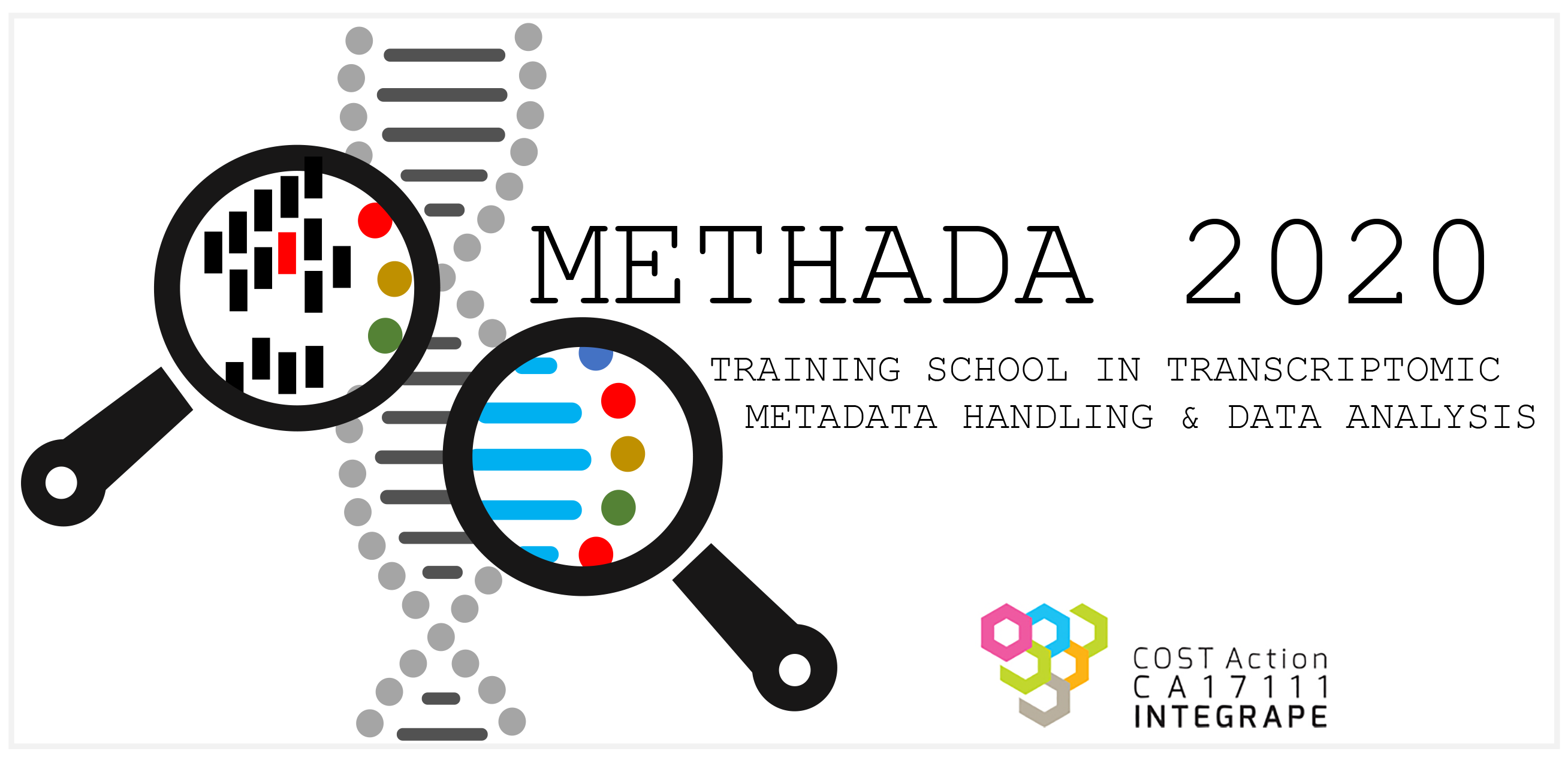Users
Social media
- More details here...
- Address
Parc Científic de la Universitat de València C/
Catedrático Agustín Escardino, 9
46980 Paterna (Valencia) Spain - Email:
iu.i2sysbio@uv.es - Phone:
(+34) 963544810
- Address
Links
I2SysBio hosts METHADA 2020 - Training school on transcriptomic metadata management and data analysis, funded by COST ACTION INTEGRAPE (CA 17111)

Investigation
I2SysBio hosts METHADA 2020 - Training school on transcriptomic metadata management and data analysis, funded by COST ACTION INTEGRAPE (CA 17111)
METHADA Training School 2020 - Transcriptomic Metadata Management and Data Analysis, is being organized in our institute and will be held on February 5, 6 and 7. José Tomás Matus is the organizer of the event and also one of the speakers.

The rise of the latest technologies that combine physics, optics, chemistry and their application to molecular biology has led to high-throughput experiments, producing an explosion of available data publicly. These data range from next-generation sequencing (NGS) to transcriptomics, phenomics, metabolomics, and large-scale single-cell data.
In the case of transcriptomics, which generates the largest amount of data to date compared to other omics, the protocols for data submission are not completely standardized for grapevine data and are not controlled by the research community. Publicly available gene expression datasets have true hidden potential in light of data reanalysis and integration. In line with the FAIR (Finable, Accessible, Interoperable, Reusable) principles, our next challenge as a community is based on the correct sample and experimental annotations, using controlled vocabularies to ensure both human readability and computational traceability.
This training course addresses the handling and analysis of transcriptomics data, and is organized into two modules. In the first unit, students will work to learn how to properly annotate experiments and manage metadata to exploit standards and bio-ontologies for data annotation. Second, attendees will be trained in a narrow set of fundamental skills for analyzing and exploring transcriptomic data sets, including resources freely available to the grapevine community. All students will learn how to use Jupyter Notebook, an open source language-agnostic web application (supports more than 40 programming languages, including Python and R) that enables a wide range of workflows in data science and scientific computing without burdening users with installation and maintenance tasks.


